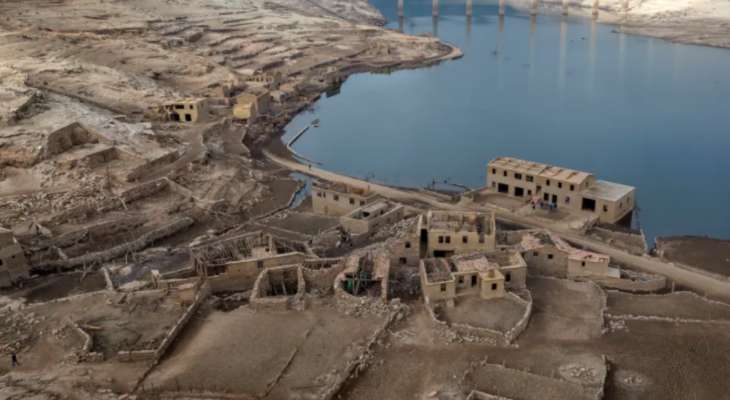Drought threatens the countries of Spain and Portugal in the worst wave in nearly 1,200 years, and concerns are growing about the consequences for food and tourism.
This happened in a study published by the British newspaper The Guardian, citing Nature Geoscience, which explains the so-called “low pressure system”, which is wet due to its proximity to the Atlantic Ocean. and a “high pressure system” that prevents the weather from getting wet.
Winters in the high pressure system have increased significantly, from one winter every 10 seasons in 1850 to one winter every 4 seasons since the 1980s.
This is caused by “the global climate crisis caused by human carbon emissions”.
Increasing high-pressure winters are drying up the Iberian Peninsula and the Mediterranean Sea, and this has led to growing environmental warnings that Tahoe is in danger of drying up completely.
Drought and rising temperatures are leading to unprecedented heat waves in Spain, which for the same reason faced huge wildfires in 2017.
The results of the study warn of the impact of these climate changes, in particular, on the agricultural and tourism sectors, and that “things to come are likely to be even worse.”
In this context, Italy declared on Monday “a state of emergency in five regions in the north of the country: Emilia Romagna, Frulli Venezia Julian, Lombardy, Piedmont and Veneto” and approved “urgent funding”. in the amount of 36.5 million euros (39.5 million dollars) to help those affected cope with the effects of the drought that has gripped the Bo Valley in recent weeks and continues to worsen.
Italy is facing unusual early heat and lack of rain, especially in the country’s agricultural Po Valley in the country’s north, which has been hit by its worst drought in 70 years.
The state of emergency provides “exclusive powers” to ensure public safety and damages, seeking to ensure normal living conditions for those in the area.
According to the country’s largest agricultural union, Coldiretti, “drought threatens more than 30 percent of national agricultural production and about half of the output of livestock farms in Wadi Bo.”
Lake Maggiore and Lake Garda also suffered from lower-than-usual water levels at this time of year, while the Tiber River, which runs through Rome, also sank to the south.
The Po River is the largest reservoir on the peninsula and most of it is used by farmers.
Several municipalities have imposed restrictions on water use in recent days: Verona, with a quarter of a million people, has increased its consumption of drinking water, and Milan has announced the closure of its ornate fountains.
Hydroelectric power plants, mainly in the mountainous regions in the north of the country, account for nearly 20 percent of the nation’s energy production.
The announcement comes a day after at least seven people died in an avalanche in the Italian Alps that Prime Minister Mario Draghi said was “undoubtedly” linked to climate change.
Source: El Nashra
